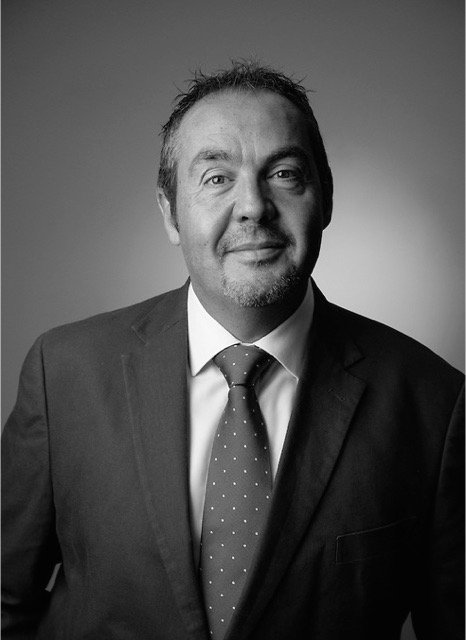The shift toward remote operations has transformed not just where we work, but how we work. For many business leaders and remote team managers, this new normal brings a unique set of challenges, particularly in nurturing and supporting the mental health of our teams. As stewards of our teams' well-being, we must adopt HR strategies that not only address these challenges but also promote resilience and a sense of community among a remote workforce.
Unique Challenges of Remote Work
The transition to remote work introduces specific challenges that can impact the mental well-being of our teams. Recognising these challenges is the first step in creating a supportive environment tailored to the needs of remote employees.
Promoting Work-Life Balance
While the flexibility of remote work is a boon, it can also blur the lines between professional and personal life. This inevitably leads to stress and burnout. Encouraging a clear separation helps prevent negative experiences that stem from remote work.
Leaders should advocate for regular work hours, emphasise the importance of taking breaks, and respect employees' personal time to foster a healthier work-life balance.
Combating Feelings of Isolation
Remote work can often lead to feelings of loneliness and disconnection from colleagues. It's important to create opportunities for virtual social interaction and team bonding. This could include virtual coffee breaks, team-building activities, or simply encouraging informal chats among team members.
Ensuring Effective Communication
With the absence of face-to-face interaction, maintaining clear and open communication becomes a challenge. Implementing regular check-ins, using collaborative tools, and encouraging an open-door policy can help mitigate misunderstandings and ensure that team members feel heard and supported.
Addressing Technological Challenges
Remote work is heavily reliant on technology, which can lead to its own set of stressors, especially for those less tech-savvy. Providing ongoing tech support, training, and resources can alleviate these pressures, ensuring that all team members feel comfortable and capable in a digital work environment.
Acknowledging Diverse Home Environments
Each team member's home environment is unique, with varying degrees of conduciveness to productive work. Recognising and accommodating these differences - whether it be through flexible scheduling or providing stipends for home office setups - can greatly enhance employee comfort and productivity.
Implementing Effective Employee Engagement Strategies
Keeping remote teams engaged is vital for maintaining productivity and fostering a positive work environment. Engagement goes beyond work tasks; it's about creating a sense of belonging and connection among team members who may be spread across different locations.
Utilising Technology for Engagement
Leverage technology to keep your team connected and engaged. Tools that facilitate easy communication, project management, and collaboration can make remote work more efficient and enjoyable. Consider platforms that facilitate effective employee engagement to enhance your team's cohesiveness and productivity.
Fostering a Sense of Community
Building a strong team spirit in a remote setting requires intentional efforts to create a sense of community. Virtual team-building activities, celebrating team achievements, and encouraging non-work-related interactions can help bridge the physical distance. Regular virtual events, like team lunches or happy hours, can replicate the camaraderie of an in-office setting.
Recognising and Rewarding Contributions
Acknowledgment goes a long way in boosting morale and motivation. Make it a point to recognise individual and team achievements, no matter how small. Whether through shoutouts in team meetings, awards, or personalised notes, showing appreciation for hard work reinforces positive behaviour and fosters a culture of recognition.
Cultivating a Culture of Open Communication
Clear and consistent communication is the lifeline of remote work, playing a pivotal role in ensuring that team members feel connected, supported, and part of a cohesive unit.
Prioritising Transparent Communication
Transparency in communication helps in building trust and reducing anxieties that can arise from uncertainty. Regular updates about company news, project statuses, and team changes can help everyone feel informed and involved, mitigating feelings of being 'out of the loop.'
Implementing Regular Check-Ins
Regular one-on-one check-ins with team members provide a private space for open dialogue about work progress, challenges, and personal well-being. These sessions are crucial for understanding individual circumstances and offering support where needed.
Promoting Psychological Safety
Creating an environment where employees feel safe to express their thoughts, concerns, and ideas without fear of judgment is essential for mental health. Encourage an atmosphere of mutual respect and understanding, where all voices are valued and considered.
Leadership Through Egoless Leadership
The approach of egoless leadership can significantly enhance communication dynamics within a team. Leaders who demonstrate humility, empathy, and a willingness to listen can foster a more open, supportive, and collaborative work environment.
Fostering a Security-Aware Remote Workforce
Security of workspaces and data is not just a technical issue but also a contributor to mental well-being. Ensuring that employees feel secure in their digital environment can alleviate stress and foster a sense of reliability and trust.
Establishing Robust Cybersecurity Measures
Implement strong cybersecurity protocols to protect sensitive company and employee data. This includes secure VPNs, regular updates of security software, and safe data storage solutions. Educating your team on cybersecurity best practices is also crucial in building a security-aware remote workforce.
Providing Technical Support and Training
Offer comprehensive technical support and training to help employees navigate any technical difficulties they may encounter. This reduces the frustration and anxiety associated with tech issues and ensures that team members can work efficiently and confidently.
Creating a Safe Digital Work Environment
A safe digital work environment extends beyond cybersecurity. It's about creating a space where employees feel comfortable and equipped to perform their best. This includes providing ergonomic advice for setting up home offices, ensuring they have the right tools and technology, and offering stipends for necessary equipment.
Regular Mental Health Check-Ins and Resources
Regular check-ins dedicated to discussing mental health and well-being can significantly impact an employee's sense of support and belonging. These conversations should be normalised and integrated into the regular workflow to remove any stigma associated with discussing mental health.
Providing Access to Mental Health Resources
Make mental health resources readily available to your team. This can include subscriptions to mental wellness apps, access to counselling services, or an employee assistance program (EAP) that offers confidential psychological support.
Encouraging Mindfulness and Stress-Relief Practices
Promote practices that can help reduce stress and increase mindfulness among your team. This could be through organising virtual meditation sessions, encouraging regular physical activity, or providing resources on stress management techniques.
Supporting Flexible Scheduling
Recognising that each employee may have different needs and circumstances, especially in a remote setting, offering flexible scheduling can greatly alleviate stress. This approach allows employees to work during hours when they feel most productive and balanced, contributing to better mental health.
Final Thoughts
Supporting the mental health of remote employees is vital for building a productive and positive work environment. By implementing thoughtful strategies and resources, leaders can ensure their teams feel supported and valued, fostering a culture of well-being and resilience in the remote workspace.
Bash Sarmiento is a writer and an educator from Manila. He writes laconic pieces in the education, lifestyle and health realms. His academic background and extensive experience in teaching, textbook evaluation, business management and traveling are translated in his works.






















